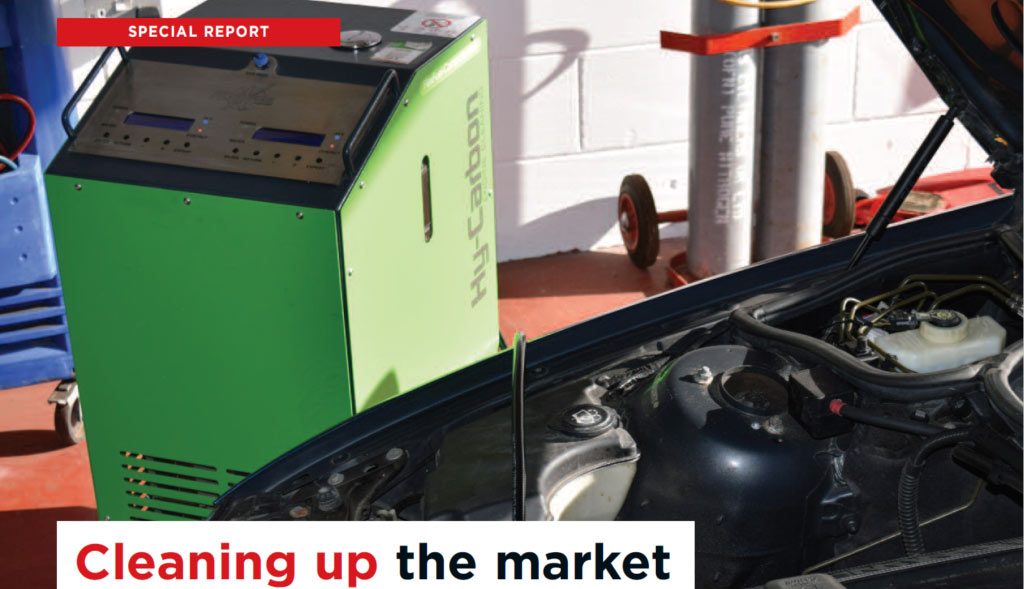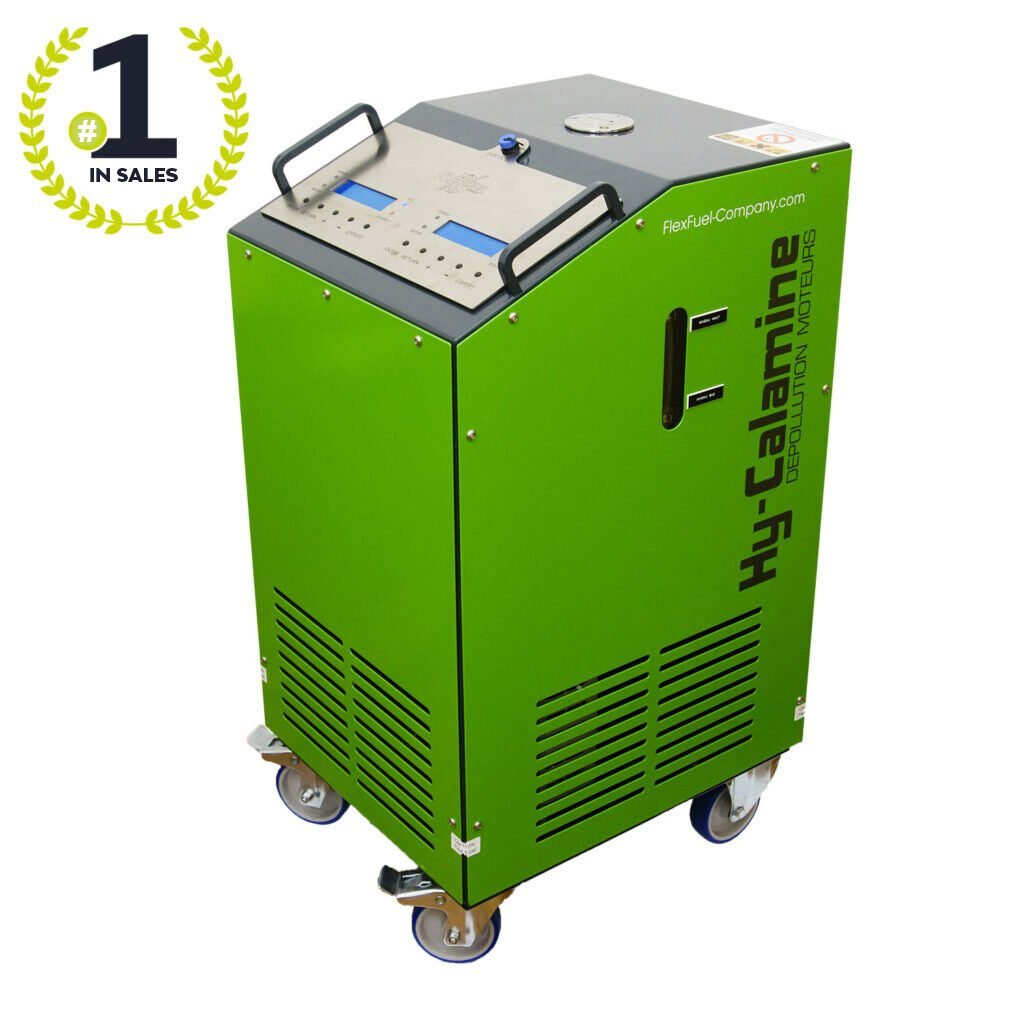Since its introduction to the UK, FlexFuel’s hydrogen cleaning solution – Hy-Carbon – has seen rapid growth as the business focuses on marking the green machines the go-to for engine decarbonisation.

Introducing a new business into the UK aftermarket is a tricky operation. However, it helps to have the backing of a major brand in Europe, the right environmental credentials, a unique selling point, and the ability to offer the right service at the right time.
FlexFuel has been able to check all these boxes since first landing in the British market in June 2018. Since then, the company has grown its partner-garage figures exponentially, and plans to double them in the next 12 months. From an unknown quantity, to recognised industry name, just how has FlexFuel achieved so much in a short space of time?

Scotland welcomes hydrogen cleaning company FlexFuel Energy Development® and it seems the aftermarket space is taking note
This month FlexFuel Energy Development UK, FFED UK, the UK’s leading hydrogen engine cleaning company, announced that it has surpassed more than 150 partner garages in its first 12 months of operation.
FFED has been targeting the UK aftermarket space and independent garage owners. Earlier this year, it signed an agreement with Point S – part of the world’s largest Independent Tyre and Autocare Group, which boast over 133 members and 230 Points of Sale in the UK, to provide FFED Uk’s hydrogen engine cleaning solution, Hy-Carbon. And it seems that the benefits of hydrogen cleaning are ringing true to the aftermarket space in Scotland. In the last few months, FFED UK has signed numerous garages in the country including Autotech Edinburgh Limietd, Road Runner MoT and Service Centre in Carluke and Kinloss Garage in Inverness.
All modern petrol engines use direct fuel injectors. They produce more BRAKE HORSE POWER from the same size engines, and go further on the petrol we put in the tank.
The new type of direct fuel injectors spray directly into the combustion chamber, and after the initial explosion.. they spray a bit more fuel to power the piston downwards prolonging the explosion, providing a more efficient combustion. But, there is a price to pay. The modern engine works very well for a short time before clogging up the valve stems in the valve chamber with caron deposits. When this happens, the engine loses power and efficiency as the valve stems are prevented from moving fluidly. […]
There is, of course a plethora of solutions on the market to address these issues and I have tried many, with various levels of success. Recently, my work-shop invested in a hydrogen engine cleaning solution – Hy-Carbon – from a French headquartered company, FlexFuel. A relatively new entrant to the UK, but with 1500 garages in France using Hy-Carbon, I was confident in investing. So, how does Hy-Carbon work?